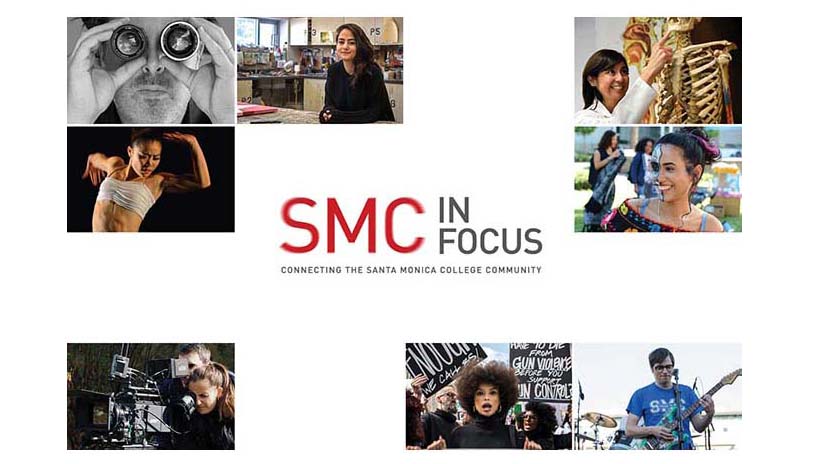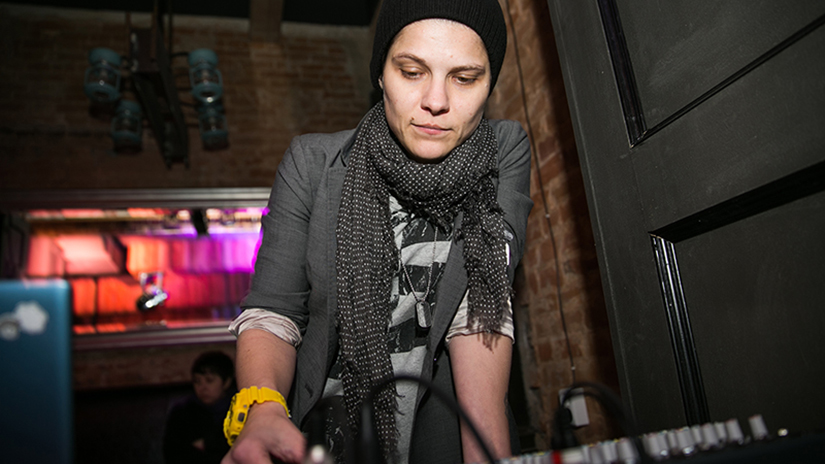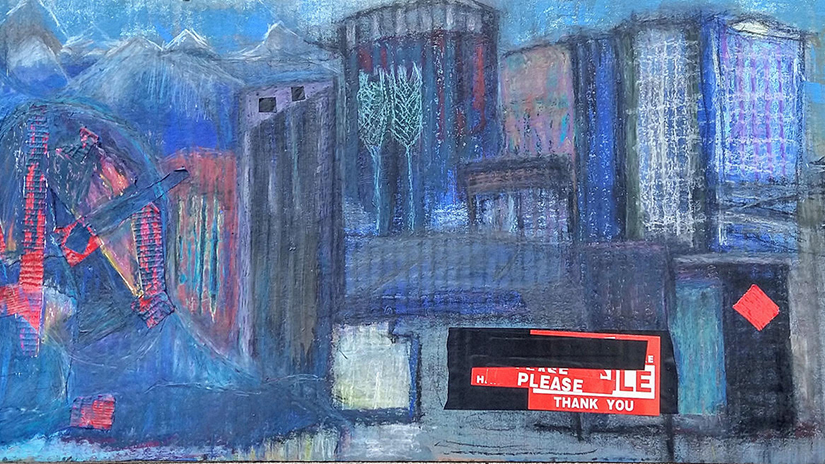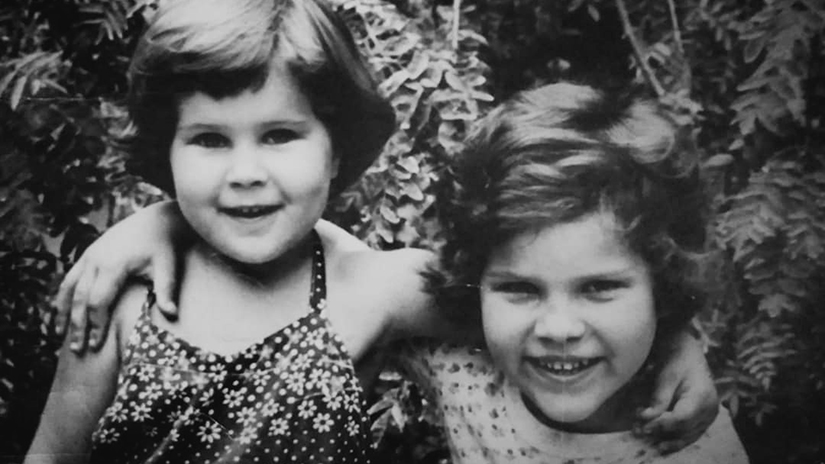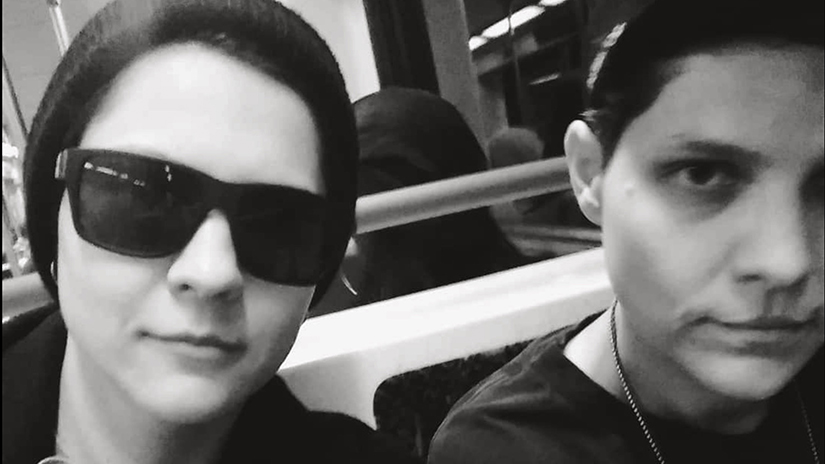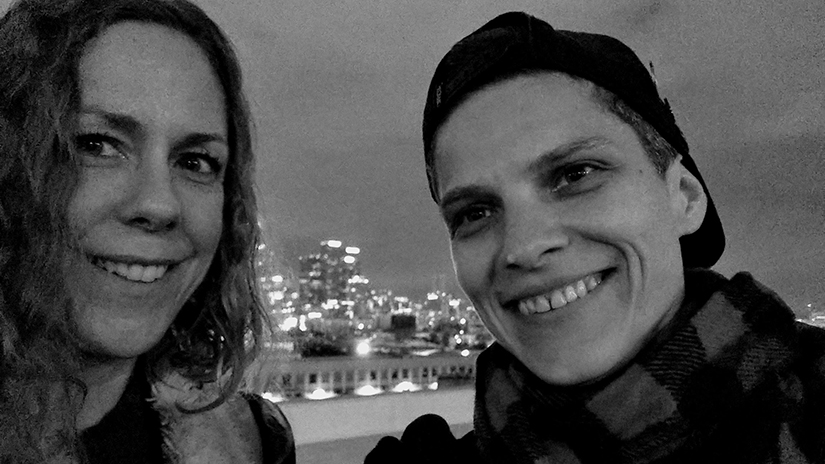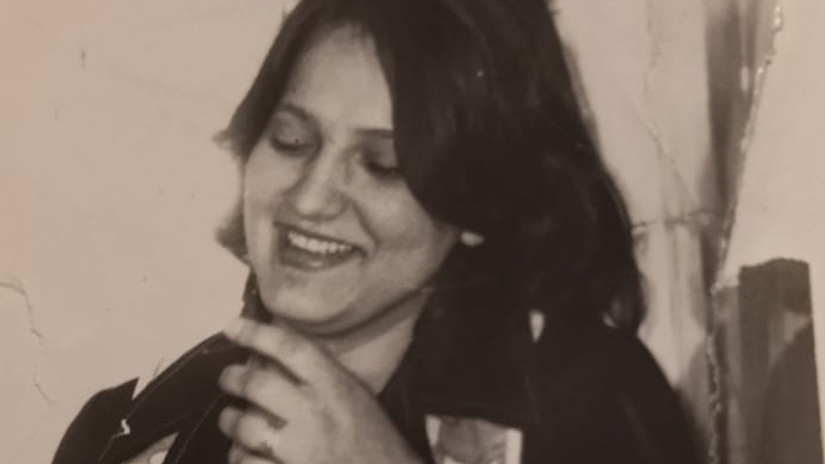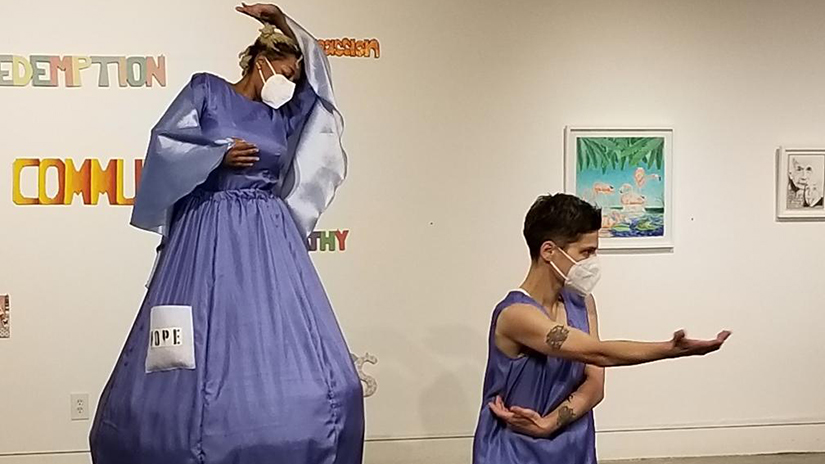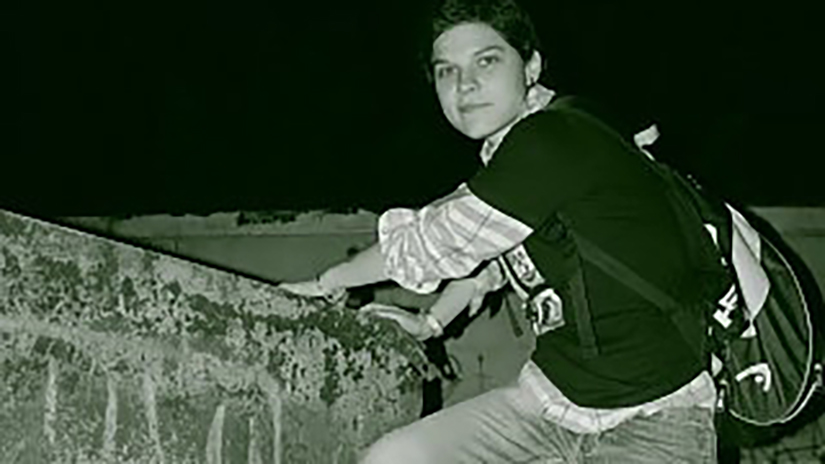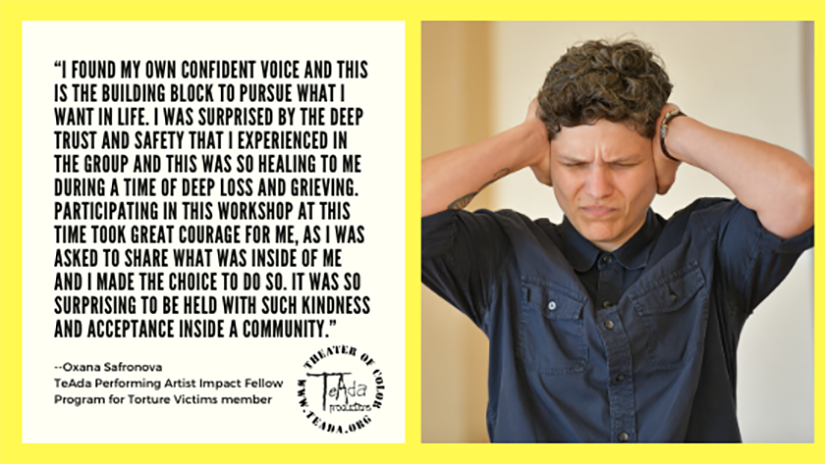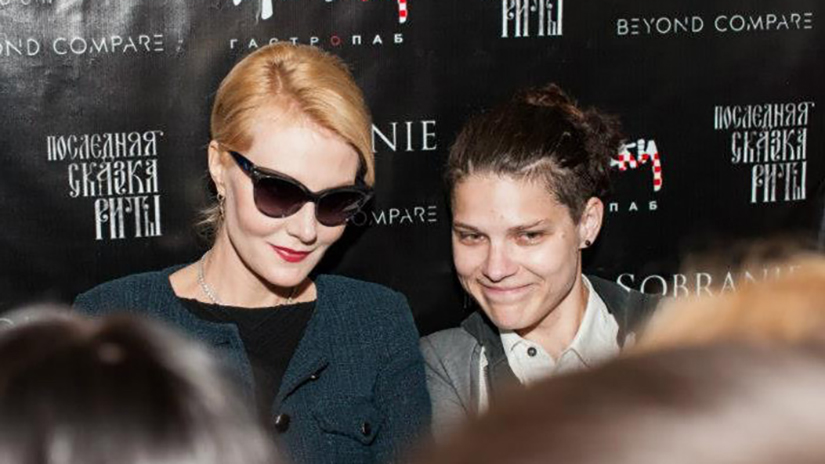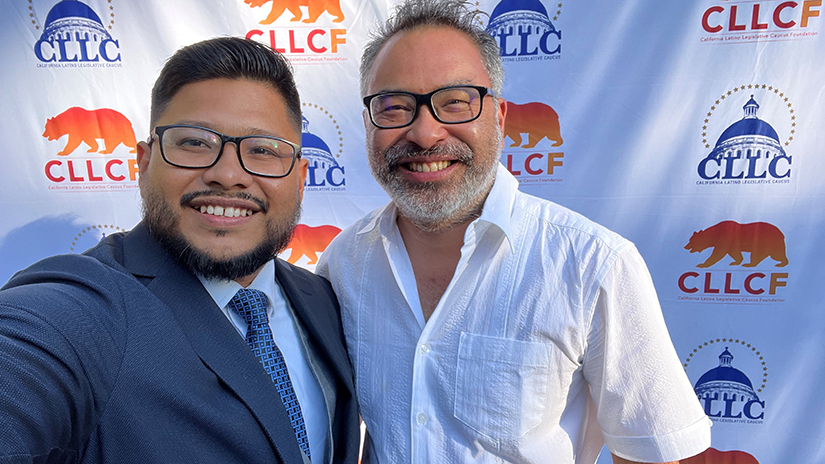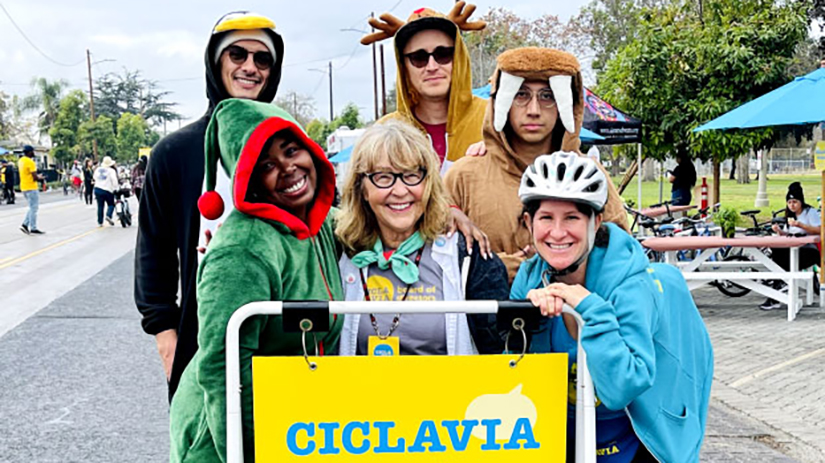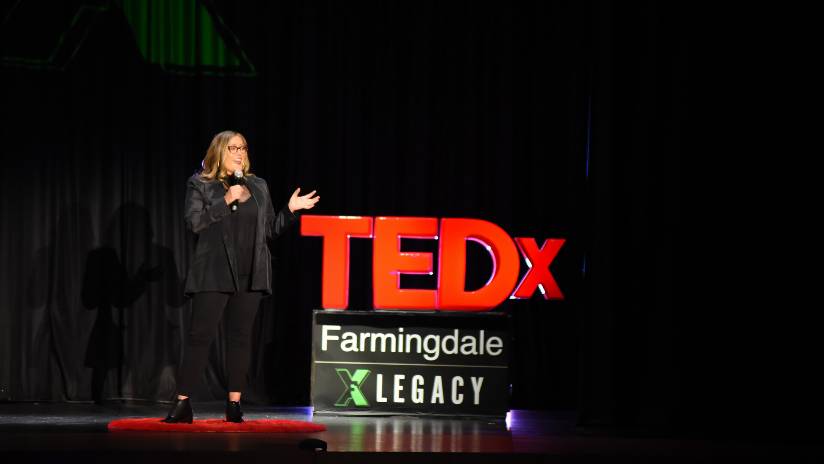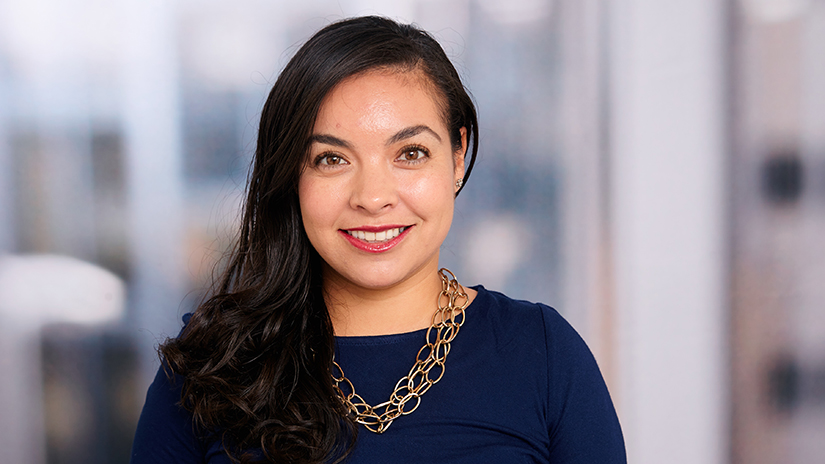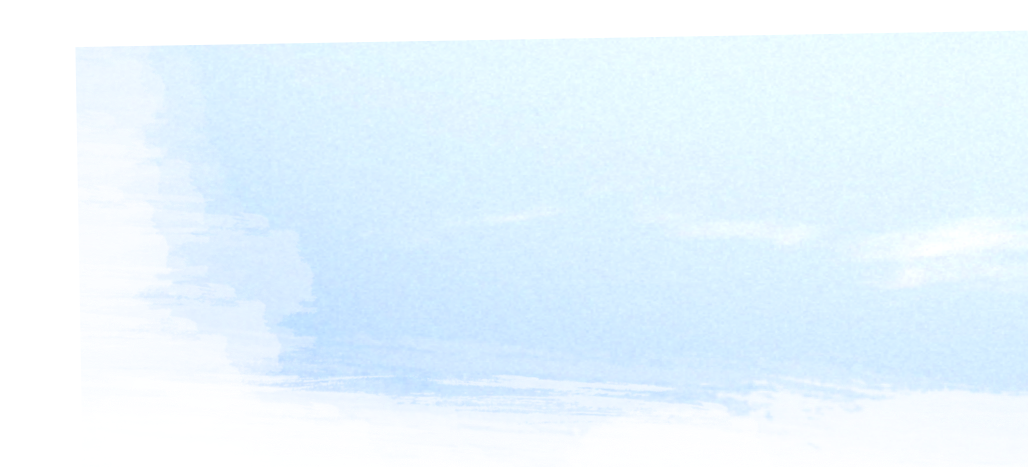
Oxana Safronova gasped as she read the email from Dance Camera West. A novice filmmaker, she’d submitted her experimental short, “Feel the Void,” without expecting anything to come of it.
And here, incredibly, was a message from the LA-based arts organization “congratulating finalists” in the 21st DCW Film Festival Awards. Her 2-minute video explores liminal spaces and forcible displacement: it begins with Oxana performing lazy barefoot strokes over a blood-red montage of Lenin’s face alongside the Kremlin’s iconic churches and towers. “Feel the Void” had its world premiere at the international festival’s awards ceremony in Barnsdall Park on January 21.
Not only is Oxana new to filmmaking. She’s relatively new to dance and choreography.
In fact, Oxana is fairly new to America.
She fled Russia as an asylum seeker in 2015, escaping rising anti-LGBTQ sentiment in her homeland. As an openly gay woman, she had endured years of harassment and police brutality under Vladimir Putin’s homophobic dictatorship.
She found sanctuary through the arts at SMC.
“For me, Santa Monica College is a brilliant opportunity to grow,” says the 44-year-old Russian refugee. “It gave me that shelter where I could bloom and take myself seriously.”
*
“Feel the Void” is only Oxana’s second film. She wears every hat in the one-woman project—director and camera operator, dancer and choreographer, composer and sound editor.
She’s also an active painter and emerging sculptor. But first and foremost, Oxana considers herself a writer.
“Writing, for me, is the dreadful necessity to survive,” she says.
Oxana still struggles with her emotions when contemplating the past. These days, newsfeeds from Ukraine trigger fresh anxieties. Oxana’s hometown in southwestern Russia is a few hours drive from war-torn Mariupol and Donetsk, where she has relatives who have gone ominously silent.
“Art has helped me and still helps me stay resilient,” she says.
*
Oxana can’t remember a time when life wasn’t stressful. She lived with her great-grandparents until age 3 to escape her parents’ volatile marriage. She adored her mother, Natalya, a medical doctor, but her father was a touring rock musician whom Oxana describes as “a hooligan and abusive.”
As a teenager, Oxana was defiant and curious, devouring books by Beatniks and French existentialists; writing short stories in the DaDa automatic style; experimenting with tape recorders, microphones, guitar, and piano to mix her own spoken-word soundscapes. She embraced a punk style and rejected bourgeois values.
Oxana studied German and English at a Russian university, but left without a degree. She threw herself into the local art scene, opting to live on the street and couch-surf with friends. “There was a phase of my life when everything I needed, I had in my backpack,” she recalls.
After working different odd jobs, Oxana stumbled upon a deeply satisfying career as an artistic director and booking agent with a chain of gastropubs that were also concert and theatrical venues. Though she loved her work, which connected her with A-list international talent and tapped her creative energy, Oxana endured regular run-ins with the local police who patrolled the underground LGBT scene
“I’ve been arrested by police many times in my life,” she says. “They would take me to jail and joke about how they would ‘teach me to be a woman.’” After Russia’s “gay propaganda law” was passed in 2013, Oxana fled. She has a family now with her wife Angela Williams, a psychologist, and stepson Finn, whom Oxana calls “my best friend.” They live in North Hollywood.
But the early LA years were rough. Oxana worked as a restaurant dishwasher, kitchen worker and hotel maid. She was devastated that she couldn’t comfort her terminally ill mother. (As an asylum seeker, Oxana is not permitted to leave the United States; even if she could, she’d risk immediate arrest upon entering Russia.)
“When my mom died, I didn’t know what to do with myself,” Oxana recalls. “It was a very, very hard period of my life. I was not interested in anything. I was so dead inside.”
LGBTQ of Los Angeles provided much-need counseling and legal aid. It also connected Oxana with Program for Torture Victims, an LA-based human rights abuse rehabilitation organization. There, Oxana started coming back to life.
PTV-sponsored creative writing workshops gave Oxana an outlet to process her grief and trauma. When writing coach Diane Lefer showed Oxana’s work to Andrew Tonkovich, editor of the Santa Monica Review, her five short stories were accepted for publication in the journal’s spring 2017 issue. They encouraged her to keep honing her craft at SMC, so she enrolled in an English course. Pretty soon Oxana was taking classes in art history.
In 2021, she earned her AA in liberal arts and humanities. But she didn’t stop there.
“I decided to stay in college and to continue to grow intellectually,” Oxana says. She’s currently working on a second AA degree in art and dance, expanding her artistic range.
*
SMC has become a haven.
“I realized that this is the safest place in the world for me. When I see a police officer on campus, I don’t react at all. There is no trigger. I feel very, very safe,” says the woman who endured years of police brutality.
She still struggles with the emotional toll of exile. She longs for her younger sister, Lida, who last visited Los Angeles in 2018. “I worry daily about her safety and mental health because of the war,” she says. The sisters collaborate remotely on art projects in which Oxana creates digital collages from Lida’s photos of “the places I miss most” in Russia.
She sees all her projects as collages. “Life is a collage for me, because I see life as a chain of events, actions and reactions,” Oxana says. “I create collages in paintings, music, and writing. The book I am working on will have the structure of a collage, too.”
She’s several chapters into a novel composed in the magical realism style. Oxana doesn’t have a plan or timeframe for publishing. She writes when the spirit moves her, in Russian first, then translating into English. When she’s blocked, she moves to another medium.
Her music is similarly spontaneous. Because Oxana can’t read notation, all her soundscapes are improvised. “I gradually add layers of sounds and different instruments, following the emotions—pain or joy—of memories from the past with which I am seized at the moment. It’s like a collage.”
*
Upon learning, as an adult, that she’s on the autism spectrum, Oxana finally understood why she found moving through the world so difficult. This self-insight impelled her to try pushing the edges of her comfort zone. She initially enrolled in dance classes to confront numb grief over her mother’s death and a dread of public performance. “I really challenged myself and took the risk. I am glad I did it. My method to get rid of fear now is to do what I am afraid of,” she says.
Her courage has paid off.
Oxana has twice held fellowships with TeAda Productions, a “nomadic theater of color rooted in the stories of immigrants and refugees.”
Last spring, as part of SMC’s collaboration with the Prison Art Collective, she appeared in “Re/Purpose,” a dance performance at the Barrett Gallery tied to Heartbeat Opera’s searing adaptation of Beethoven’s Fidelio. When a collaborative project with SMC’s Art Department placed her in choreographed interaction with student sculptures, she decided to try her hand at this tactile art form. She’s since taken studio courses in sculpture, drawing, watercolors, even experimental gallery installation. Oxana was part of the student team that worked with SMC artist-in-residence Matika Wilbur on construction and curation of the current Barrett Gallery exhibition, Project 562. Last November, she worked on the related All My Relations Film Festival and live recording sessions of Matika’s podcast series.
And in January, Oxana’s award-winning short was screened at the DCW film festival.
Much of her success she lays at the feet of mentors like choreography professor Vanessa Van Wormer, modern dance instructor Karen McDonald, and art professor Emily Silver.
“The teachers in Santa Monica College, they’re just there when you are falling,” she says. “I’m so grateful.”
What comes next for Oxana is anyone’s guess. Because there’s nothing she won’t try artistically, there’s no limit to what she might assemble in her life’s collage.
* * *



